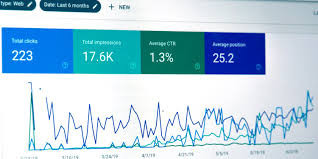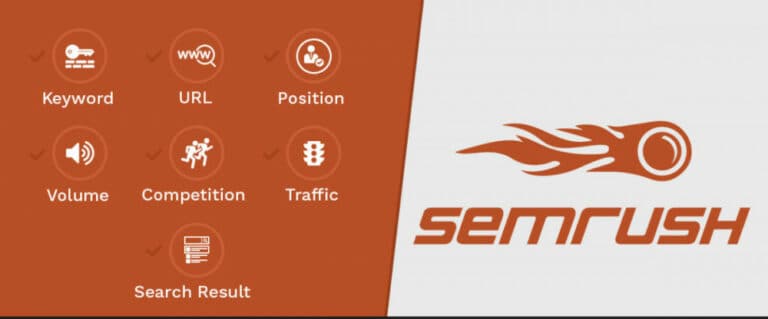What Are Short-Tail Keywords For SEO
What Are Short-Tail Keywords For SEO?
Keyword research makes the (SEO) world go round. It is always worth investing in keyword research, but not all keywords are created equal. They can of course vary a lot in topic, type, and length. And those differences have a big impact on how you optimize your website for them. Take short-tail keywords for instance. Whilst typically harder to rank for than their long tail counterparts, they are still valuable search terms to target (if you want to reach the right audience).
Keywords are a major part of any search engine optimization (SEO) campaign, and choosing the best keywords to target is crucial for the success of your website. In order to get search engine robots to more accurately detect the subject matter of your website, you should target relevant keywords by placing them into various website elements such as headings, descriptions and the content itself.
However, it is also particularly important to ensure that you do not over-optimize your website through excessive keyword usage. Your chosen keywords should be used sparingly in such a way that they are almost unnoticeable and natural to your readers, lest your SEO can end up being completely counter-productive.
One of the most popular tools to use for keyword research is the Google AdWords Keyword Planner. It’s a free tool (Google Adwords account required) that provides you with keyword suggestions along with important information such as approximate value in pay-per-click advertising programs, competitiveness and monthly global and local searches.
Want to Start Making Money Online?
Try My #1 Recommendation Program!
Short-tail keywords are much more general search queries consisting of one or two words, while long-tail keywords consist of three to five or even more words. When searching for more specific results, web users tend to type a longer query (i.e.: a long-tail keyword) into Google or another search engine in order to get more relevant results.
By contrast, if they are only searching for a general topic, then they’re more likely to enter a short-tail query of one or two words. When looking for keyword suggestions, novice online marketers can be tempted to go solely for short-tail keywords, since these terms often hold the most traffic. However, it’s important to remember that short-tail keywords are extremely competitive in spite of the large number of hits the keywords receive.
Keywords are phrases and words that identify what people are searching for online. Ideally, they’re also the words and phrases that you use to describe your company and content. Keyword research is how you bridge the gap between what your clients are looking for, and what your brand aims to rank for.
Keywords are an important factor in SEO ranking and something that Google uses when determining where to place your content in the search results. Get your keywords right, and both the search engines and your customers will understand the “context” of your website. This means that you rank higher in the search results, and you get into your customer’s heads by answering the questions they were already asking online.
What Are Short-Tail Keywords?
Short-tail keywords are keywords that have extremely low competition and a high likelihood of ranking highly on search engines (Google, Bing, etc.). Many of these keywords are broad enough to include almost anything related to your niche. And they are almost always perfectly suited to specific topics – such as example “mortgage” vs “mortgage lender” or “polyamorous” vs “polyamorous relationships”.
To demonstrate this, let’s look at how a website like the UK’s UKXL Finance website is optimized for short-tail keywords. The company targets a relative niche market and therefore targets keywords that target both the niche and the broader area they’re trying to reach.
Like their long tail counterparts, short tail keywords must be very targeted. They’re short-tail keywords because they typically cover very specific groups of people (such as wedding couples) as opposed to broader terms. The phrases will be shorter, but also more focused.
However, this isn’t to say short tail keywords are always less valuable. In fact, many of them have a much larger potential to rank for. They should therefore always be approached with a bit of caution. If you are unsure of your options, I recommend reading and understanding the content on the SumoMe website. One example of a short tail keyword for SEO is “best paintball field”, which doesn’t mean you can’t use it for other industries, for example.
Why Do I Need Them?
Short-tail keywords are the low-hanging fruit of SEO. These are terms people will use to find you and get you to their screens. They are often more specific in nature and have specific algorithms built-in for them. Short tail keywords allow you to optimize content with data, rather than relying on keyword ads or strategies.
Instead of just throwing in a few random words that hopefully relate to your site, you can use data to choose and rank the best results to reach your audience. The best way to use these words is with a content plan. Try to start with a couple of different ideas on your page. Use Google Analytics to find the most popular posts to test and rank.
When you can’t rank for a long-tail keyword you may as well at least rank for the top related short-tail terms. Targeting short-tail keywords are pretty much the best strategy for webmasters looking to rank for more competitive keywords. Short-tail keywords are also generally longer in length.
While some search engines may rank long-tail keywords longer than 30 words, they usually can’t find and rank short-tail keywords for long. However, the longer keyword doesn’t necessarily mean that it will rank as well as the short-tail keyword. Why do I want to rank for long-tail keywords? Long-tail keywords are easier to rank for, but you may be unable to rank for many of them for one reason or another. So, it makes sense to at least try and rank for the majority of the longest ones.
Want to Find Out How To Start Your Home-Based Business?
Try My #1 Recommendation Platform!
How Do They Differ From Long-Tail Keywords?
The length of a keyword is measured as the number of words. This number of words has a big impact on how effective a keyword is. If you can fit in only two words, they are not typically optimized to perform well. A query with only a few words is often called a small keyword.
On the other hand, if you can fit in hundreds of words, it is almost certain that you have a long-tail keyword and a significantly powerful one at that. For example, let's say you're working on a blog for vintage and retro watches. If you want to write a blog post about the watches made by Fossil, you'd want to get keywords that people will search to find your page. “Fossil watches” is a short-tail keyword that can be used to rank your blog.
They are easier to rank for and more valuable. They typically have fewer competitors. What’s important to understand is that short tail keywords have a lot to offer when it comes to search engine optimization (SEO). However, we’re going to explain why you should always take your keyword research and SEO strategy with a pinch of salt. Local SEO – As it stands, the vast majority of website visitors only visit one or two pages of a site before leaving. All of the rest are either external links that lead to other websites or else offline pages.
How Do I Find Them?
It’s quite difficult to find short-tail keywords in Google Analytics, but it is possible to find them in Keyword Planner.
Step 1: Use Keyword Planner. To see all the keywords currently showing in your keyword traffic, go to the ‘Plans & Actions’ tab and click on ‘Tools’ > ‘Keyword Planner'.
Step 2: Click ‘Search Keywords’. Find the keywords by typing in the search bar. You can do this multiple times to ensure you don’t miss any.
Step 3: Find Short Tail Keywords. Once you’ve found a few potential keywords, you can see how they compare to each other, how they rank against others (in a spreadsheet), and you can see how popular they are with users (from search traffic).
Basically, SEO depends on finding phrases that rank for a specific keyword and linking to them. The more specific the phrase, the better. The most common ways to find short-tail keywords are through Google Search Console (GSC), Bing, and competitor analysis. All of the major search engines use GSC to track keywords.
GSC can be particularly useful for finding low-hanging fruit keywords. While those are easier to rank for, they are also the easiest to rank for. This means that the words you rank for in Google and Bing will generally come up for every single search on the two search engines.
How To Optimize Your Site For Them
Short tail keywords are going to be used to target specific niche audiences. They are the keywords that will appear for a person when they are looking for something like a product, service, or website. And they are good to start with if you want to gain traffic. You should therefore make sure that your site is optimized for them.
There are some tips you can use for that. One of the best is to use a keyword tool (like SEMrush) to analyze the keywords that show up in relevant search results. You can also include an alt tag for a short-tail keyword within your content. That way it is easier for search engines to index the content. So that is one way to help increase the visibility of your content in search engines.
According to the Linkedin SEO and Keyword Research Overview from Merkle, short-tail keywords can have a moderate search volume and can therefore have a high CTR. SEO expert Juan Tamariz sums up the quality of a keyword like this: “Long-tail keywords are more precise and focus on brand equity or the brand's most important selling points.
Whereas, short-tail keywords are more general and therefore target the entire consumer base and can be used to determine where the consumer is coming from and where the brand can serve the best interest of the consumer”. A big takeaway from this is that it makes good SEO sense to use both long tail and short tail keywords.
This is where short-tail keyword research can be beneficial. You can identify popular short-tail keywords that are very specific to your website or industry, and which your site tends to rank well for. You can then focus your energy and resources on those keywords.
They are typically within the top 20% of the search results for those relevant searches, so they are not going to be hard to rank for. If you’re creating new content or trying to improve your position in search results, this could be the perfect time to pay attention to them.
Take the BBC for instance. Their article on using Adwords for SEO is very clear in it's intent. It lists a bunch of examples that companies are using for SEO and then explains why each tactic works. It also highlights some of the best Google tools that can be used to target these types of keywords.
The BBC is not specifically looking to rank for the keywords they mention, so how can they make the most of these keywords? By keyword optimization, of course. That means understanding the subject they are looking to serve to their audience, building around this, and then finding the right keywords for this purpose. This gives you a great starting point for any site that needs more traffic and needs to attracts potential customers with those keywords.
Why Invest In Short-Tail Keywords?
Because they carry less weight on search engines (remember, your potential customers are more likely to search for such a query than search for long-tail searches like “kid-friendly sleepwear”). This means they need to be highly relevant to a searcher and more specific (at least the length of the part of a page you want to rank for). They are also harder to rank for compared to long-tail keywords, but if you can manage to do so, the benefits can be lucrative. Let's look at the types of short-tail keywords.
According to PageFair, 59% of people who visit your website will come back within 60 seconds. This is a massive time investment for a visitor, yet the majority of visitors are likely to be using only 10 seconds of that time to decide if they want to spend more time on your site.
This is also a heavily engaged group, as they are likely to be checking your website often and exploring it. It also says that users who have long-tail keywords first on their searches are 44% more likely to convert. So it’s critical that you offer content that is highly relevant and useful to your visitors. However, the fact that people are using less than 10 seconds of that precious time is incredibly powerful.
Are You Tired Of Scams?
Try The Most-Trusted Training Platform To Make Money Online!
The Importance Of Keyword Research
There are some very basic reasons why you should do keyword research. Firstly, you want to find the right phrases to rank for. And secondly, you want to create as many relevant keyword phrases as possible to ensure they find the top spots on Google search results.
If you can establish two (or more) key phrases that are highly relevant and deliver the best organic traffic to your website, you're better off optimizing them for one long-tail keyword (such as: “US pizza delivery”) than for a couple of short-tail ones (such as: “best pizza delivery”).
Today there are more than 50 billion search queries that are run every single day. Let that sink in for a moment. That means, statistically, there is a person on the planet right now searching for something in Google. If you could spend one second of your day on Google, you'd be lucky to use your whole brain to comprehend the sheer magnitude of Google's search empire.
But the huge scale of Google means that no one single company can completely dominate it. All you can really do is pick a few phrases you think will drive the majority of your website traffic. Those are your short-tail keywords. You can use a combination of long-tail and short-tail keywords, but focusing on just a few select phrases will help you maximize your traffic.
How To Use Short Tail Keywords For SEO
I put together the below post to show you some more information on how to make use of short-tail keywords to increase your search engine rankings. Keywords are just one way to increase your traffic to your website, however. The other is through a link-building campaign. If you’re a designer, I highly recommend using a platform like inboundoptimization.com to build links to your website. It can be a long journey from inbound links to your website being ranked higher, however.
The basic SEO rule when targeting short-tail keywords is that you should strive to minimize your competition by using only the most relevant keywords for your industry. This means avoiding phrases like “cash cow,” “free gift,” or “call center.” If you’re going to use short-tail keywords, it’s best to keep them super unique and relevant to the keyword phrase in question.
In this tutorial, we will explain how to identify short-tail keywords using Google Analytics, the essential metrics you should look at when you want to optimize your website for a specific keyword. You’ll also learn some strategies you should be looking at when using short-tail keywords, as well as the different rules of thumb you should be using when it comes to keyword optimization.
For short-tail keywords, you have to make sure that you’re providing value. You can do this by:
- Retaining the terms which are clicked on and not forgotten
- Targeting prospects who share the same interests
- Providing content that reflects the interests of your audience
- Researching how your keywords are generally being searched, and what sites rank for them,
- Using them to enhance the content on your site
- Using them to drive targeted traffic to you from websites that Google considers relevant (i.e. long-tail keywords).
Negative Keywords
Negative keywords are those which do not in any way complement your business or industry. Some examples of such terms are ‘automotive insurance', ‘insurance broker', or ‘consultancy'. These types of words should be avoided as they can make your website look unprofessional. Don't use keywords that are unnatural (but are associated with what you offer).
Terms that don't fit into any of the previously mentioned categories should be avoided as well. “I do it for you” or “this is what I do for you” are examples of unnatural language. These types of keywords are not as influential on a search engine as long-tail keywords because they are unbalanced and of lower relevance. But that does not mean that they are useless.
You might be surprised to learn that people (supposedly) search for ‘how to paint a room’ a lot less often than you might expect. It’s true that searching for how to paint a room generates a lot of long-tail SEO opportunities, but one of the few ways you can get people to your website is to rank for the keyword related to them.
It is important to remember though that even in those instances you don’t always want to rank for the keyword as the user might not be very likely to find your business via a search for that particular term. Another good example of a short-tail keyword is related to your products. If your company sells mobile devices then you could potentially rank for a term related to mobile devices (i.e. “Smartphone” or “smartphone case”).
Conclusion
Writing a quality blog post can be daunting, as it is much easier to simply edit a draft and then publish it without reviewing it in advance. And it’s not as if it’s going to earn you any money, it’s just a way to record your thoughts and to present your knowledge in an interesting and personal way. But don’t worry too much about the content and don’t think that you need to write a masterpiece to prove yourself.
A quality blog post is not always about how much you know, it’s about how you express your thoughts. And that doesn’t need to be difficult. By taking a few minutes to write some quality blog posts you can develop your skills and give yourself the chance to compete with a few others and maybe earn a little money as a result.
I trust you enjoyed this article about What Are Short-Tail Keywords For SEO. Would you please stay tuned for more articles to come? Take care!
JeannetteZ
Want to Learn How to Build Your Own Home-Based Online Business & Start Making Money Online From Your Comfortable Couch?
Try Wealthy Affiliate!
Your Opinion Is Important To Me
Thoughts? Ideas? Questions? I would love to hear from you. Please leave me your questions, experiences, remarks, and suggestions about What Are Short-Tail Keywords For SEO, in the comments below. You can also contact me by email at Jeannette@WorkFromAnywhereInTheWorld.com.
You may also enjoy the following articles:
How To Identify Long-Tail Keywords And Use Them
8 Best Ways To Beat Your Competition At Blogging
8 Best Ways To Beat Competitors At SEO
13 Ways To Make Your Content Better
The 9 Best Phone Apps For Blogging











